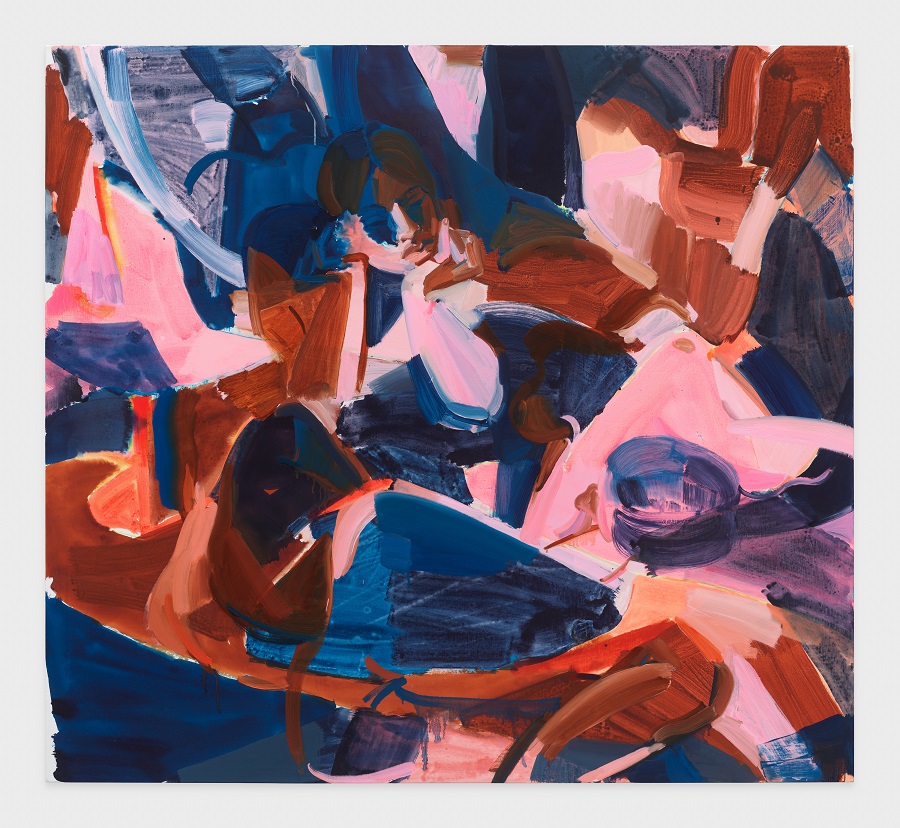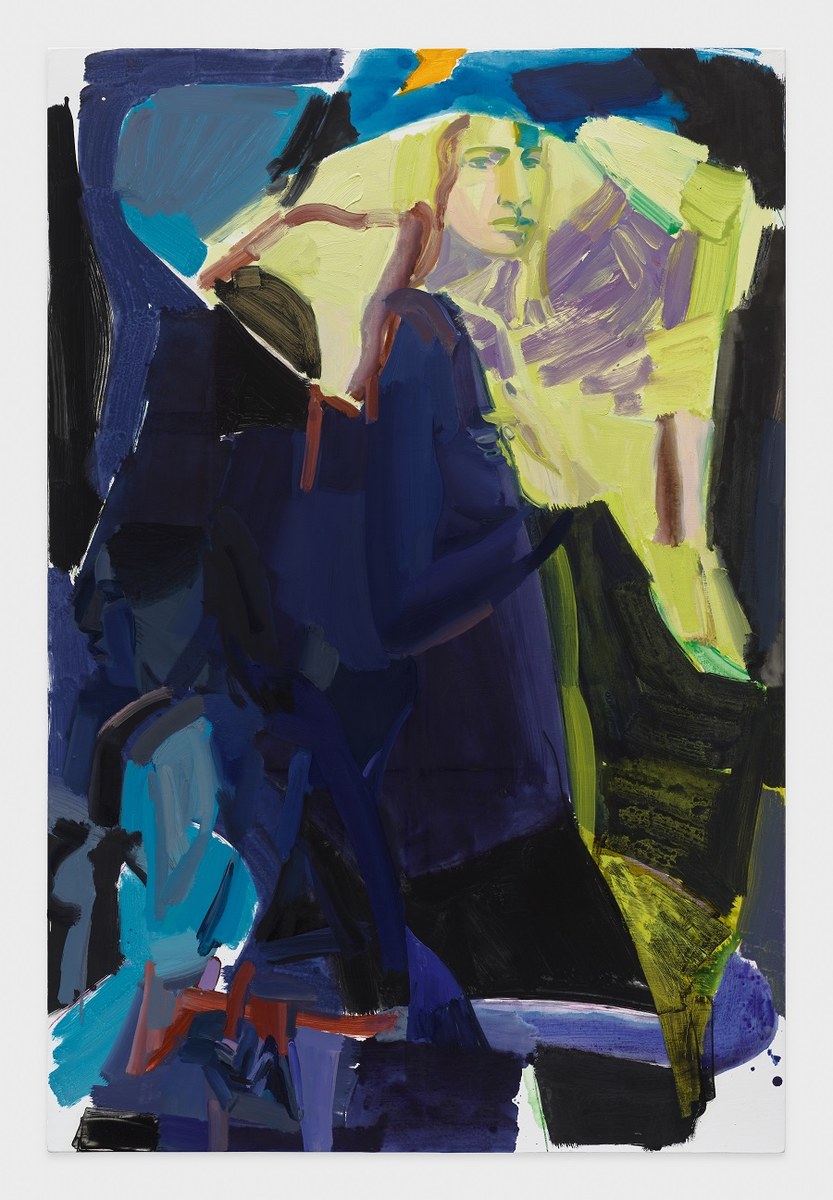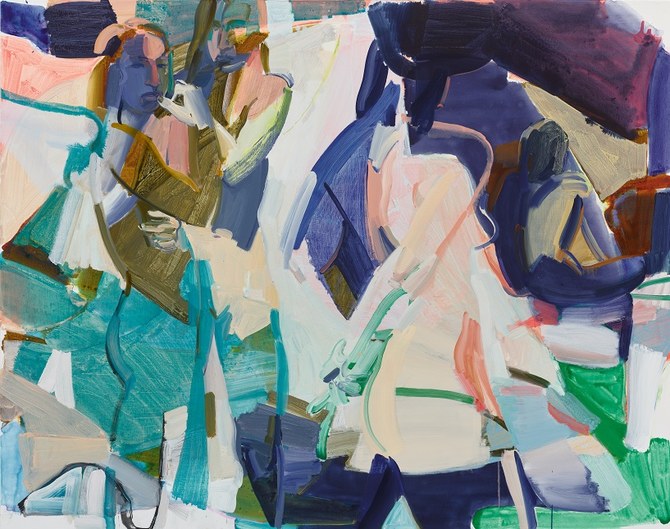DUBAI: Los Angeles-based painter Sarah Awad was born to a Lebanese-Syrian father and a Lebanese mother. Despite her Levantine-Arab roots, however, she only made her first visit to the Middle East in November, to install her show at The Third Line in Dubai, “Rainbow Clearance and Other Paintings,” which will occupy the gallery’s two floors until Dec. 16.
“The thing that really struck me about Dubai was the international community and how vibrant and diverse it is,” Awad tells Arab News. “People are really hospitable, warm and engaged. They come and they participate. It feels small, because everyone knows each other and supports each other.”

Sarah Awad. (Supplied)
Awad has been interested in art since childhood. “Art education in the States is not great and my family are not artists, but my mom always exposed me to creative projects,” she says. “For some reason, when I was a kid, I knew I was going to be a painter.
“I don’t think I can imagine doing anything else. I think painting is both a joy and a gift, and also a source of tension, because there’s always a sense of not being satisfied or feeling like there’s still questions and something unresolved,” she continues. “I think what is exciting to me about painting is the sense of the unknown. To make a great painting, you have to experience not knowing.”
The works in the exhibition demonstrate Awad’s practice of layering and merging shapes, colors and faces together. The form is free-flowing and bold, marked with thick, fearless brushstrokes. The use of color — she isn’t afraid of juxtaposing light and dark — is a constant theme in her work. “An initial starting point for me is thinking about the palette and color relationships. Sometimes, it doesn’t work,” she says with a laugh.

Sarah Awad's "Phantom Web" (2022). (Supplied)
“I’m really interested in a color that doesn’t feel like it should work but does,” she continues. “It’s all about how they work in relationship to one another. In much of the work, you’ll see a really vibrant, saturated color that is sort of offset by a more neutral color, or a color coming through other colors, carving out its own niche. I like that to be a surprising moment in the painting.”
While the paintings contain elements of abstraction and figuration, Awad refrains from labeling her style. “I don’t have a categorization for it. I think it situates itself along certain lines of questions that painters had, historically, about abstraction,” she says.
“They’re not process-based paintings, but at the same time, they use intuition and language that stems from (abstract expressionists) Helen Frankenthaler or Willem de Kooning — this kind of way of responding to materiality and then imposing a conscious structure to the work. It’s not just about material improvisation, or accident, it’s also about intention,” Awad continues.

"Neon Pulse" (2022). (Supplied)
At times, it seems as though there may be hidden figures in some of Awad’s work. Some are in intimate conversations, while another is looking straight at the viewer or is lost in thought. Each image seems to have a story of its own.
“I think they’re kind of open-ended. The way that I think about their situating in the painting is often just a gesture,” Awad says. “They’re gestures of intimacy but also of looking — the act of looking. I think that there’s a way in which they ask you to kind of engage with them and the painting.”
In recent years, the contemporary art scene has changed, with large installations and on-site projects that are more likely to get picked up by social media becoming increasingly popular. There is something humble, then, in Awad’s back-to-basics approach to staging her work, allowing viewers to contemplate the images directly and appreciate once again the art of painting.
“I haven’t found a need to do other things,” says Awad. “I find painting to be so challenging as a discipline and so rich that you can stay inside that box for your whole life and still never find the edges of it. I think the reason it feels sort of anarchic in today’s world is that it takes time, and I don’t know if the younger generation is conditioned for that.”












